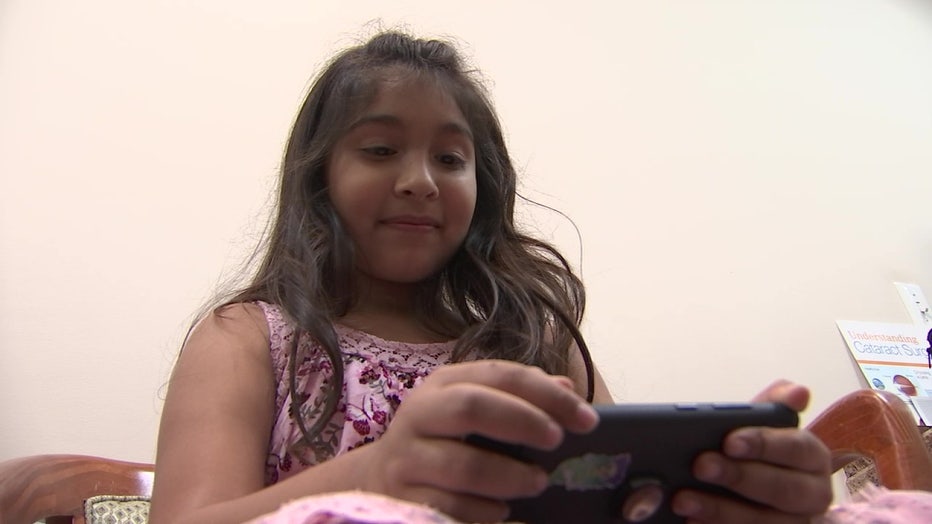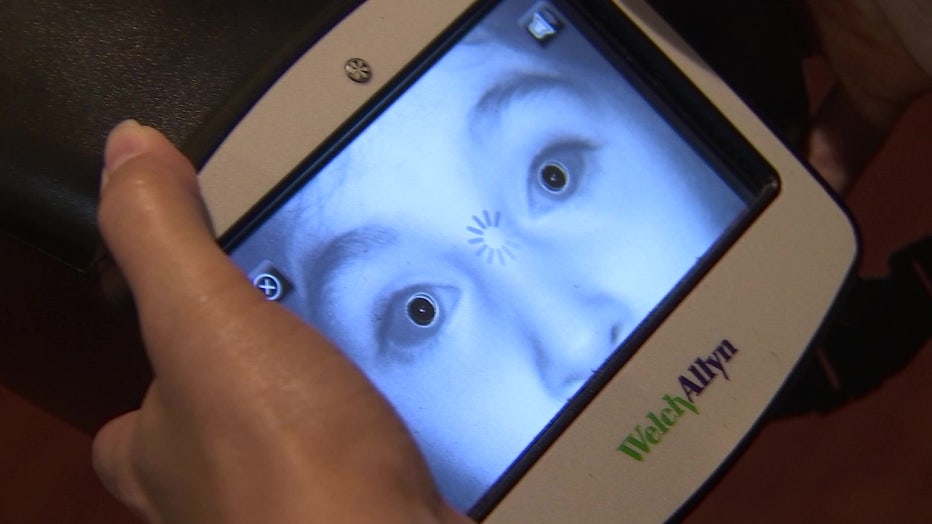New technology could change how kids get their eyes checked

New tech makes kids eye exams easier
The Spot Vision Screener takes pictures of the eye all the way to the back. It could pick up on risk factors for serious conditions.
LARGO, Fla. - Ophthalmologists have noticed something troubling with kids recently.
"Children are having more difficulty with nearsightedness. Our young children up to age seven probably have seven percent or so of nearsightedness. By the time they're teenagers, they may be 20 or 30 percent nearsightedness," said Dr. J. James Rowsey.
Doctors say not only are kids spending more time on phones and tablets, but they are also holding them close to their face.
"They can actually watch a movie on their telephone at three inches away instead of across the room. So that is increasing the nearsightedness difficulty," said Dr. Rowsey.

Kids are spending more time on devices that impact their vision.
So what can parents do? Besides limiting time on those devices, doctors say getting your kids out into the sunshine can help.
"We found that outdoor activities increase the ability to see a distance because there's less reading going on outside. But there's something about being outdoors and seeing a distance and being in the sunlight that decreases the progression of the nearsightedness," said Dr. Rowsey.
READ: The FDA says over 100 medications have more demand than supply
And getting kids screened is also important.
One technology tool is changing how kids get their eyes checked.

The new technology helps kids get the eye care they need.
It's called a Spot Vision Screener.
"It's approved by the American Academy of Pediatrics. And what it does is take a lot of pictures of the eye all the way to the back of the eye called the retina. Then it maps the eye on the way back and gives us a printout of the results. We can screen pre-verbal children, nonverbal children, folks that that might speak a different language than the person screening them. So and the results are very accurate," explained Jennifer Whittington with Preserve Vision Florida.
She said it could pick up on risk factors for serious conditions like lazy eye.
READ: What's behind all of those appointment reminders?
"And if we catch that condition in the early treatable stages, we might be able to save the sight in that eye," said Whittington.
Which makes regular screenings for kids all the more important.
"One in 20 preschoolers has a vision issue and one in four school age children has a vision issue. There's cognitive ramifications. There's physical ramifications. Their literacy may be affected, their grades, their participation in things like sports and their overall confidence could be affected simply by vision," said Whittington.
For more information about Preserve Vision Florida, click here.

